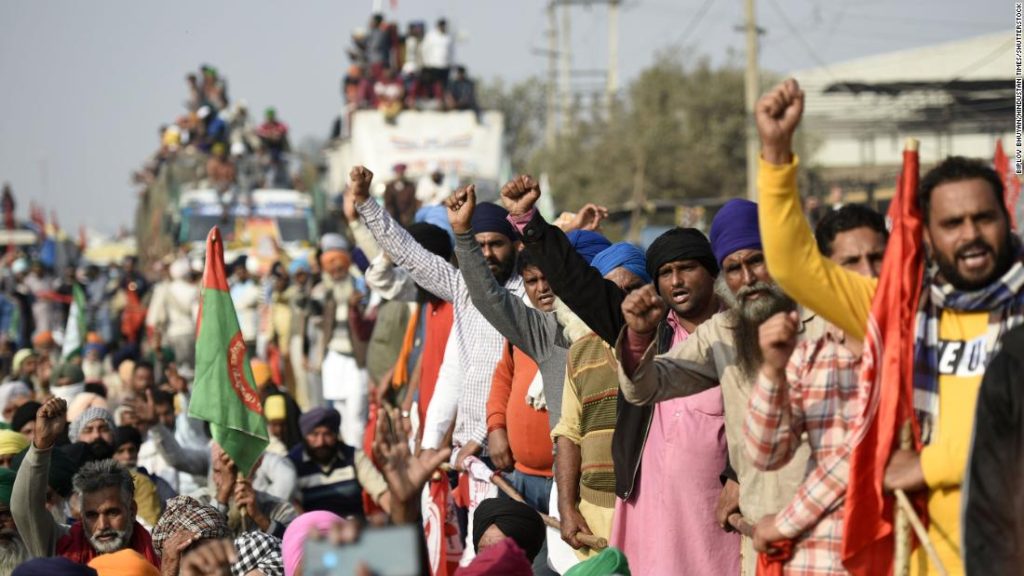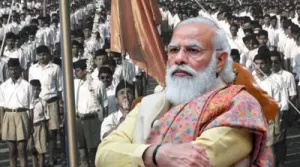20-20 signifies perfect eyesight; does the year gone by give an insight intothe future?
In spite of the dread of a tiny virus, the year ended on a dissonant note of celebration. A large and significant section celebrated the iron fist that finally did away with an autonomous Kashmir, corrected the imbalance in citizenship, countered the nefarious Chinese, resurrected a glorious Ram mandir, will double farmers’ incomes, and is forging ahead in a crusade against the anti-national, the undisciplined Dalit, female, Muslim, and assorted mleccha.
Another large and significant section celebrated the resistance to all these, in spite of the lockdown, and that was reflected in small and large gatherings of students, workers, farmers, women, nurses, doctors, teachers, unemployed, lawyers, engineers, evicted, displaced, and disabled. But the most significant section celebrated that their net worth zoomed up by 35% when national GDP contracted by 23%.
All the celebrations were about ‘change’ but what was the change? The change sought by the iron-fisted and the tight-fisted is explicit enough: the former moving towards an international market with a domestic Brahminical order; the second acquiring more and more wealth. But what change did the resisters imagine? For this, we look at a few of the pan-Indian movements.
The protests in Jammu and Kashmir that lingered on from 2019 asked for the restoration of Article 370 and 35A and the rights that the citizens of Jammu, Kashmir, and Ladakh possessed before the state was split into three. The intrusion by the Chinese also called for a restoration of the earlier status. The other protest that spilled over into 2020 demanded the scrapping of the CAA and the NRC.
Early in the year, protests emerged on university campuses against fee hikes, the New Education Policy, and repression; and later against the UGC guidelines. The lockdown put an end to public demonstrations but could not stop the hapless migrant workers from registering their silent dissent through the long walk home, supported by numerous groups who fed and housed them, and demanded buses and trains for their return.
The year triggered off three different movements which all came to maturity and are likely to set the agenda for 2021. Firstly, changes in labour laws spurred protests by unions all over the country, culminating in the general strike of November that demanded cash transfers, rations, employment, tenure, pensions, and withdrawal of anti-worker laws. Secondly, the farmers powered their agitation in August with a jail bharo, and are now at the threshold of the national capital repeatedly affirming that the anti-farmer laws must be repealed. And thirdly, the anti-rape, anti-molestation, and anti-patriarchy stirrings have been countered with a spate of ‘love jihad’ laws, but that has not subdued the dissent.
All these resistances have one common theme of withdrawal to an earlier state of affairs. They thus resist the changes being proposed or implemented by the first group of celebrants but are not putting forward a vision of a better future. Would, for instance, the taking back of all the new laws change the root causes of militancy, of mal-education, of jobless growth, of caste and patriarchy, and of agrarian distress?
Perhaps we need to go back to an earlier period of ideological debate, and rework an imagination of a better society. Thus, if we accept that, with all the links to oppressions of caste, gender, race, and religion, what we live in is a rampant capitalist society, then we also begin to see that there could be a focus to resistance. The three principal forces that drive capitalism are the perpetual search for ever more profit, the constant antagonism to labour, and the insane extraction from nature. Resistance therefore, must reflect on how these forces can be countered and overcome with Gandhi’s talisman of the “poorest and the most helpless”.
Asking for the Constitution to remain as it is an admirable view, but is it 20-20 vision? Would not a demand for rooting citizenship in work, rather than residence; and advocating for the directive principles to become fundamental rights; be worthy contributions to our Constitution? If a living wage (that includes food, shelter, clothing, and all facilities for the family), as proposed by a Parliamentary Committee in 1948 and agreed to at the 1957 Indian Labour Conference, were fought for with grit and determination, instead of tinkering around with the minimum wage, would it not signal a huge step forward for all labour against capital while at the same time challenging profit?
If living wage were introduced into the calculations of Minimum Support Price, would it not spur the imagination of both agricultural workers as well as farmers to not only reclaim the value of their labour while also steering the way forward to growing hardy and nutritious crops that reduce degrading inputs and restore health to nature? Instead of only trying to protect existing employment where is the challenge to capital to create opportunities for safe and healthy livelihoods?
And the toxic campaign against love –where does its counter lie except in the affection and passion that collective work and living nurtures? Tagore once wrote, “Love said to the world, ‘I am yours.’ The world gave it the freedom of her house.
(Dunu Roy is Director, Hazards Centre, Delhi.)




